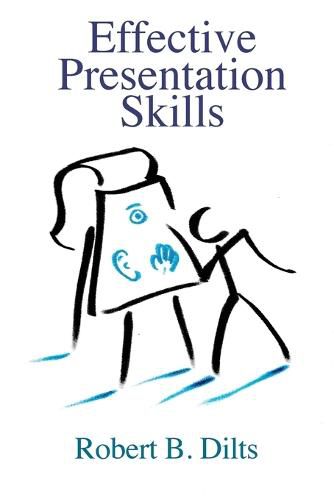Readings Newsletter
Become a Readings Member to make your shopping experience even easier.
Sign in or sign up for free!
You’re not far away from qualifying for FREE standard shipping within Australia
You’ve qualified for FREE standard shipping within Australia
The cart is loading…






This title is printed to order. This book may have been self-published. If so, we cannot guarantee the quality of the content. In the main most books will have gone through the editing process however some may not. We therefore suggest that you be aware of this before ordering this book. If in doubt check either the author or publisher’s details as we are unable to accept any returns unless they are faulty. Please contact us if you have any questions.
Effective Presentation Skills At some point in our lives we are probably all called upon to make a presentation. It may be at school, a social function of form some professional purpose. The demands of the Information Age make it increasingly necessary and likely that we will need to make presentations as part of our normal activities. Making an effective presentation requires the ability to communicate and relate to other people. These are very basic skills, yet they are not usually taught to us as part of our traditional classroom education or professional training. The purpose of this book is to provide some of the key practical communication and relational skills necessary to make effective presentations. The great Greek philosopher Aristotle maintained that an effective speaker had to have three basic abilities: (1) to reason logically, (2) to understand human character and (3) to understand the emotions. These capabilities appear to be as relevant today as they were twenty-five hundred years ago. This book is about how to develop skills that support these abilities by applying modern developments in the psychology of learning and communication primarily drawn from the field of Neuro-Linguistic Programming. While the skills in this book are relevant for all types of presentations, the focus is on people who make presentations for professional reasons. In particular, it focuses on presentations for teaching and training purposes, i.e., those related to organizational learning. In addition to professional trainers and teachers, it includes managers, consultants and others who need to share knowledge and information. The book covers three general areas involved in making effective presentations in a learning context including (1) basic principles for forming an effective communication strategy, (2) designing and planning effective presentations and presentation materials and (3) managing issues related to motivation and interactions with a group or audience.
$9.00 standard shipping within Australia
FREE standard shipping within Australia for orders over $100.00
Express & International shipping calculated at checkout
This title is printed to order. This book may have been self-published. If so, we cannot guarantee the quality of the content. In the main most books will have gone through the editing process however some may not. We therefore suggest that you be aware of this before ordering this book. If in doubt check either the author or publisher’s details as we are unable to accept any returns unless they are faulty. Please contact us if you have any questions.
Effective Presentation Skills At some point in our lives we are probably all called upon to make a presentation. It may be at school, a social function of form some professional purpose. The demands of the Information Age make it increasingly necessary and likely that we will need to make presentations as part of our normal activities. Making an effective presentation requires the ability to communicate and relate to other people. These are very basic skills, yet they are not usually taught to us as part of our traditional classroom education or professional training. The purpose of this book is to provide some of the key practical communication and relational skills necessary to make effective presentations. The great Greek philosopher Aristotle maintained that an effective speaker had to have three basic abilities: (1) to reason logically, (2) to understand human character and (3) to understand the emotions. These capabilities appear to be as relevant today as they were twenty-five hundred years ago. This book is about how to develop skills that support these abilities by applying modern developments in the psychology of learning and communication primarily drawn from the field of Neuro-Linguistic Programming. While the skills in this book are relevant for all types of presentations, the focus is on people who make presentations for professional reasons. In particular, it focuses on presentations for teaching and training purposes, i.e., those related to organizational learning. In addition to professional trainers and teachers, it includes managers, consultants and others who need to share knowledge and information. The book covers three general areas involved in making effective presentations in a learning context including (1) basic principles for forming an effective communication strategy, (2) designing and planning effective presentations and presentation materials and (3) managing issues related to motivation and interactions with a group or audience.